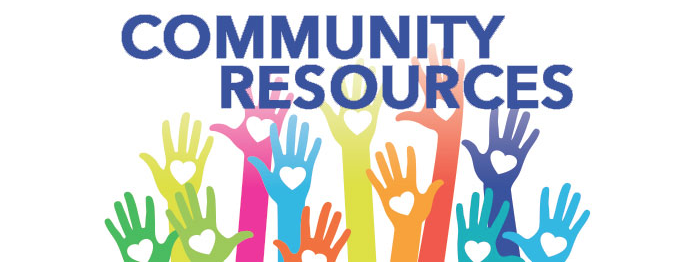In close voting, Washington state legislators enacted new laws in the 2021 session to reform some policing accountability and practices. As the laws have taken effect, legislators are speaking out to clarify what they see as “some misinterpretation” of the new laws.
||| FROM SALISH CURRENT |||
[Salish Current Editor’s note: In the July 16 issue of the Salish Current newsletter, we published a link to an open letter from Whatcom County law enforcement officials taking exception to parts of the state legislature’s passage of police reform laws. The letter is signed by Bill Elfo, Sheriff, Whatcom County; Flo Simon, Chief of Police, Bellingham; Dan MacPhee, Chief of Police, Everson-Nooksack; Kevin Turner, Chief Police, Ferndale; Donnell Tanksley, Chief of Police, Blaine; Daniel Debruin, Chief of Police, Sumas; and Steve Taylor, Chief of Police, Lynden.]
BY SEN. LIZ LOVELETT, REP. DEBRA LEKANOFF AND REP. ALEX RAMEL
This last year, the Washington State Legislature heard a clear call from communities around Washington insisting on real reform to our criminal legal system and action on police accountability. We responded with several bills designed with community advocates, local governments and law enforcement representatives at the table. As these bills have begun to go into effect, we have heard concerns, and even misinformation, from some local police departments that the legislation limits their ability to help in a behavioral health crisis.

Let us be perfectly clear: nothing in the bills we highlight below change what calls officers are allowed to show up for, nor do they require officers to leave the area if a crime is not being committed. Law enforcement has always had discretion over what calls they show up to. Some law enforcement agencies are making a choice to no longer assist on behavioral health calls. This is a decision made by those agencies and is putting the health and safety of our communities at risk. We believe there has been some misinterpretation of the new laws, and we hope our law enforcement agencies will continue to work with us to implement them in good faith. The vast majority of agencies will continue to show up to calls for service as it is their ethical and professional responsibility. We commend these departments for working to effectively implement the new laws.
These new police reform laws heed the call for action and accountability we heard clearly last summer as millions of Americans of all races and ages poured into the streets to demand an end to police violence. The murders of George Floyd, Breonna Taylor and Manuel Ellis, among many others, led Americans to think deeply about systemic bias in our police and criminal legal systems. These problems are unfortunately no stranger to Washington state or the 40th District. Despite Black and white people using and selling drugs at similar rates, a study of drug possession cases from 1999-2019 found that Black people were arrested and charged with drug crimes at 5.4 times the rate of white people in Whatcom County and at 3.3 times the rate of white people in Skagit County.
As your legislators for the 40th District, we knew that Washingtonians were demanding action and we had to change how police showed up in our communities. To help plot that course, the Senate Members of Color Caucus and members of the Senate Law and Justice Committee began community outreach to draft policy. The House of Representatives formed the Policing Policy Leadership Team, made up of members from the House Public Safety Committee, Black Members Caucus and Members of Color Caucus. Rep. Lekanoff was on this leadership team and participated in dozens of meetings with stakeholders prior to the start of the 2021 legislative session including every law enforcement union in Washington, the Washington Association of Sheriffs and Police Chiefs, the families of those killed by unnecessary police violence, the Washington Coalition for Police Accountability and the Washington Alliance for Black Lives, among others. Rep. Lekanoff also hosted five public safety round tables here in the 40th District where she convened city, county, state, federal and tribal governments including elected officials, law enforcement officers, prosecutors and public defenders so that our community’s unique needs could be heard and addressed.
The package of public safety and criminal justice reform bills that emerged from this process will work in combination to set clear expectations for officer behavior, set a baseline of acceptable police tactics and equipment and build systems of accountability and transparency to create systemic change. HB 1054 sets clear expectations for acceptable police tactics and banned or limited dangerous and inappropriate police tactics and equipment such as chokeholds, no-knock warrants and certain military equipment. HB 1310 creates a standard of reasonable care when determining whether to use physical force. That standard calls on officers to exhaust all available de-escalation tactics, to consider the characteristics and conditions of the person to whom force is being applied and to use the minimal amount of force necessary. Officers are currently trained in these techniques as mandated by the voter approved I-940. HB 1310 simply codifies that as the statewide standard for use of force.
We are confident that the public servants in law enforcement will be able to adapt their use of force policies to prioritize de-escalation while still providing Washingtonians with the level of public safety they expect and deserve. We are committed to working with law enforcement throughout this implementation process to be sure they have the information and the direction they need to effectively do their jobs. The Attorney General is currently working on a model use of force policy and to respond more quickly to some urgent questions we have heard from law enforcement. We also stand prepared to clarify or amend these laws to ensure our intent is clear.
Once these laws are fully implemented, the result will be less discriminatory uses of force by law enforcement. In turn this will help rebuild trust between law enforcement and the communities they serve. By prioritizing de-escalation and ensuring that protecting human life is law enforcement’s highest priority, we can create a safer and more equitable Washington for every one of our neighbors.
**If you are reading theOrcasonian for free, thank your fellow islanders. If you would like to support theOrcasonian CLICK HERE to set your modestly-priced, voluntary subscription. Otherwise, no worries; we’re happy to share with you.**







